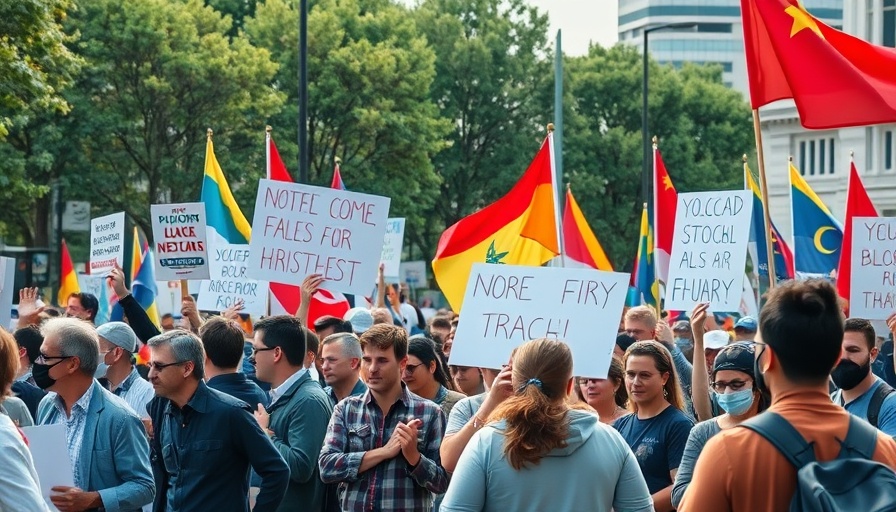
The Absurdity of Marching to Gaza: A Lesson in Misplaced Intentions
Amid swirling political tensions and complex narratives surrounding the Gaza conflict, the recent "Global March to Gaza" has become a striking example of how well-meaning intentions can falter in execution. Thousands of protesters from Europe sought to make their voices heard in a war zone, only to find themselves met with hostility and logistical challenges in Egypt. The stark realities of the region are often obscured by Western narratives, and this march laid bare the gap between profound intentions and the unpredictable nature of foreign engagements.
A Clash of Cultures: The Response of Local Egyptians
When protesters, mainly from affluent European countries, sought to cross into Gaza, they encountered resistance not only from Egyptian authorities but also from locals who were baffled and irked by the influx of outsiders meddling in sensitive political dynamics. As the marchers were detained and escorted out, it highlighted a critical misunderstanding: that activism requires not just passion, but also an acute awareness of cultural and political contexts. Ordinary Egyptians greeted these protesters with scorn, reminding them that their perspectives are often misaligned with the urgent issues faced by locals who live amidst ongoing conflict.
The Risks of Idealism: A Glimpse into Global Activism
This event serves as a cautionary tale for international activists. As seen with the plight of similar marchers in Libya, where protestors were reported to lack basic necessities, the realities of activism on foreign soil can lead to dire consequences. It raises the question: What happens when the empathy of distant supporters meets the harsh realities of those they aim to help? Engaging in activism from a distance risks creating an echo chamber, where well-off demonstrators may not view the context of their actions. Instead of being a force for change, such initiatives can become a form of self-indulgence masked as altruism.
Reflecting on Global Realities: A Shift in Perspective Needed
In the wake of the failed march, it is essential for Western activists to reconsider their approach and motivations. The notion that Westerners inherently possess the answers to global challenges is naive and often misguided. This not only undermines local voices but also perpetuates a cycle of dominance that can exacerbate existing problems. Perhaps now there is an opportunity for activists to reflect on their privilege and consider how their intentions align with the needs of actual communities affected by conflict.
The Future of Activism: Moving Towards Inclusivity and Understanding
As social movements evolve, the failure of the "Global March to Gaza" underscores a need for greater humility in activism. It emphasizes the importance of listening to the voices within affected communities rather than imposing external beliefs. Moving forward, activists are encouraged to cultivate genuine connections with local groups, allowing those on the ground to guide the narratives and strategies that should be prioritized. This paradigm shift is vital not just for successful activism but for fostering real, lasting change.
Taking Action: Learning from Mistakes
For anyone involved in social justice or activism, this event should act as a mirror, reflecting both the potential and pitfalls associated with global solidarity movements. Acknowledging the limits of one’s understanding and the importance of local context can empower activists to make a more meaningful impact. Real change involves partnership and respect, not merely transportation and symbolic gestures.
If you’re passionate about creating a more just world, consider deepening your understanding of the nuances involved in global activism. Learn from the missteps, engage with those whose lives are most affected by these issues, and strive to create action that is informed and respectful.
 Add Element
Add Element  Add Row
Add Row 



Write A Comment